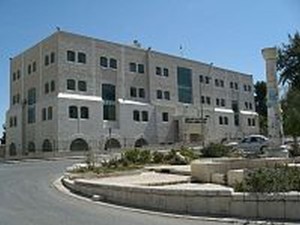After last year’s lockdown, Israelis back at parks to celebrate Independence Day
Hundreds of thousands of Israelis flocked to beaches and parks across the country Thursday, barbecuing, waving flags and craning their necks for a glimpse of the Air Force fighter jets’ flyby to mark the country’s 73rd Independence Day.
While most wore face coverings or had masks strapped around their chins, the scenes looked nearly identical to those from the pre-coronavirus era. After an early wave of the pandemic tamed celebrations significantly last year, Israelis were allowed to celebrate freely this year, with restrictions drawn back almost entirely.
As a result, families flocked to national parks and beaches, filling many to full capacity. The Israel Nature and Parks Authority issued a statement early Thursday afternoon urging civilians to avoid traveling to the Tel Ashkelon National Park in the coming hours due to overcrowding.
The Tze’elon, Shikmim and Amnon beaches at the Sea of Galilee were also shuttered to additional visitors after reaching full capacity, the parks authority said.
Meanwhile, Israeli Air Force planes jetted across the country to mark the occasion. The flyover, a popular and iconic feature of Independence Day celebrations, is passing over more cities and towns than usual this year in what the Israel Defense Forces has called a “salute” to all Israeli citizens.
Last year, during the onset of the COVID-19 pandemic, the flyby saluted medical staff over the nation’s hospitals.
Ben-Dror Yemini: On this Independence Day, Israelis have a lot to be proud of
There is no point in denying that after four consecutive election rounds in two years, the atmosphere in the country is tough and even irritating.
And while the public discourse, as filled with discontent as it is, paints a seemingly gloomy picture, the people of Israel are actually pretty pleased with their country - as they should be.
This is not due to blind optimism spurred by the festivities of the 73rd Independence Day. No, it is an actual fact solidified by concrete data.
Israel is placed fourth among OECD countries in the sphere of healthcare. And while the average happiness index score among OECD countries is hovering around 6.5 out of 10, in Israel the score is 8.5.
Indeed, the people of Israel are stronger than the eroding influence of its political system.
And while the voices of discontent among Israelis are indeed loud, they do not, in fact, represent the majority.
Israel's Gini index - a measure of the distribution of income across a population - reached a 20-year low in 2018, which means inequality gap is narrowing.
That is without mentioning the fact that Israel is ranked fifth in the world in intergenerational mobility - which means that an individual's wellbeing is less dependent on the socioeconomic status of his or her parents. In that respect, we have beaten countries such as New Zealand, Sweden, Germany and Japan.
According to one survey, however, as least 48% of Israelis are considering emigrating to another country. In reality though, Israelis tend to emigrate much less, at least compared to other OECD countries.
In fact, emigration from Israel has declined. In 1990, according to a study by Uri Altman, the rate of those leaving Israel was 5.3 people per 1,000. After about a decade, it dropped to 4.2 per 1,000 and by 2017 it stood at about 1.6 per 1,000.
It seems that despite warnings about people leaving the country en mass, the majority of Israelis have actually decided to put down roots in the Jewish State.
As Israel celebrates 73 yrs of independence, growing antisemitism serves as the proof for the necessity of Israel's existence:
— Dov Hikind (@HikindDov) April 14, 2021
Here's a look at a handful of incidents of Jew-hatred around the globe that occurred just in the past week.#YomHaatzmaut #YomHaZikaron #YomHashoah pic.twitter.com/PKL9P28XpA
Independence Day torch lighters span in age from 18 to 102
Fourteen people have been selected to light the symbolic torches at this year’s Israel Independence Day ceremony on Wednesday night, according to Israeli news site Maariv.CEO of Pfizer proud of Israel's achievements on Independence Day
The ceremony, in which 12 torches are lit to symbolize the 12 tribes of Israel, traditionally marks the transition between Israel’s day of remembrance for fallen soldiers and Independence Day marking the country’s founding in 1948.
Among those who are being honored as torchbearers are Ofri Butbul, an 18-year-old Israeli who saved the life of an elderly man she had gotten to know as a volunteer with a nonprofit organization, as well as Yaish Giat, a 102-year-old Yemenite Torah scholar who owns a spice shop and sells natural medicines.
A committee chooses the torchbearers, who are approved by Israel’s sports and culture ministers.
Giat was surprised to hear he had been chosen for the honor.
“People say it is a great honor. I do not know,” he told Ynet. “When I raise the torch I will wish that our nation love one another, that people will respect one another for the benefit of the Land of Israel.”
This year’s Diaspora representative, a recognition introduced in 2017, will go to Gabriela Sztrigler Lew, a volunteer from Mexico who turns 20 this week.
Lew has participated in more than 10 humanitarian missions with the Shalom Corps, an organization run by Israel’s Ministry of Diaspora Affairs and the Jewish Agency, and assisting Holocaust survivors during the pandemic.
Israel offered Pfizer CEO Albert Bourla the chance to light an Independence Day torch, and although he declined due a scheduling conflict, the CEO did give a pre-recorded video speech at the event.
"I'm honored that you've chosen to pay tribute to Pfizer in this Independence Day ceremony," Bourla began.
"Along with other Jews in the world, I take immense pride in Israel. Pride in the fact that Israel is there for Jews everywhere, for us and for our children. Pride in Israel's achievements in science, technology, innovation, and so much more" he told the audience.
"This year, the partnership between Israel and Pfizer produced yet another groundbreaking achievement," he said. "Together we are demonstrating that through mass vaccinations, we can defeat the COVID-19 pandemic and save lives. I want to thank Prime Minister Benjamin Netanyahu and all the Pfizer colleagues in Israel. We have been shown that there is a path back to normalcy – and that is definitely something the entire world can celebrate."
The CEO concluded by saying "Happy Independence Day" in Hebrew.
























































